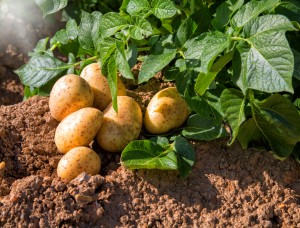Why Are Nicotiana benthamiana Plants Applicable?
After reading the article, The potential of plants as a system for the development and production of human biologics, I have found out that the reason why many researchers use Nicotiana benthamiana plants as a test subject is because of its many advantages. These plants provide low production costs for producing more test subjects and development of antibodies, high scalability in protein expression, low safety precautions, and like any plant there are very few plant pathogens that can be transmitted from the plant to a mammal. What else is more appealing about these plants is that at the Biodesign Institute there is no need for capital prohibitive facilities to store the plants, no need for any bioreactors, fermenters, or sterile delivery methods. Like any other plant these plants require carbon dioxide, water, light, and fertilizers to help them grow and develop. However a key point about these plants are that at the Biodesign Institute these Nicotiana benthamiana plants are considered transgenic, meaning that they are bio-engineered to express the production of antibodies by receiving viral genetic material, that codes for the antibodies structure, from tobacco-mosaic viruses such as Potato virus X. Normally, plants don't have any antibodies to protect their cells from pathogenic infections, as a result the plants that I am working with are synthesized to express the antibodies that can be used to fight off viruses such as dengue. The antibodies produced from the transgenic plants are tested in petri dishes where the researchers testing the antibodies can insert the dengue virus with mammalian cells into the dish in order to examine if the synthesized antibodies are able to disrupt the dengue virus from replicating. In the article, I have found out that the researchers insert mammalian glycosylation genes in order to synthesize antibodies that can coexist in both the plant's and the mammal's immune system. The researchers had to turn to this route, because the initial antibodies produced from the plants were destroyed by the mammalian immune cells, that were found in a separate petri dish. Through the process called N-glycosylation, which is basically attaching an extra sugar molecule called a glycan to a nitrogen atom found in the amino acids of the proteins in the plant cells that produce the antibodies. Through this process the results were successful as the plant-produced antibodies were able to be transported into the mammalian cells to help defend the mammalian cells from the dengue virus.

Cool project! About how long would it take to see these results form? Are you able to monitor and analyze all of the different stages that occur after the researchers insert mammalian glycosylation genes?
ReplyDeleteIt is amazing that a plant in the tobacco plant family could potentially save lives for hundreds of thousands of people worldwide as Dengue virus infects more people than any other mosquito-borne virus. What awesome research!
ReplyDelete